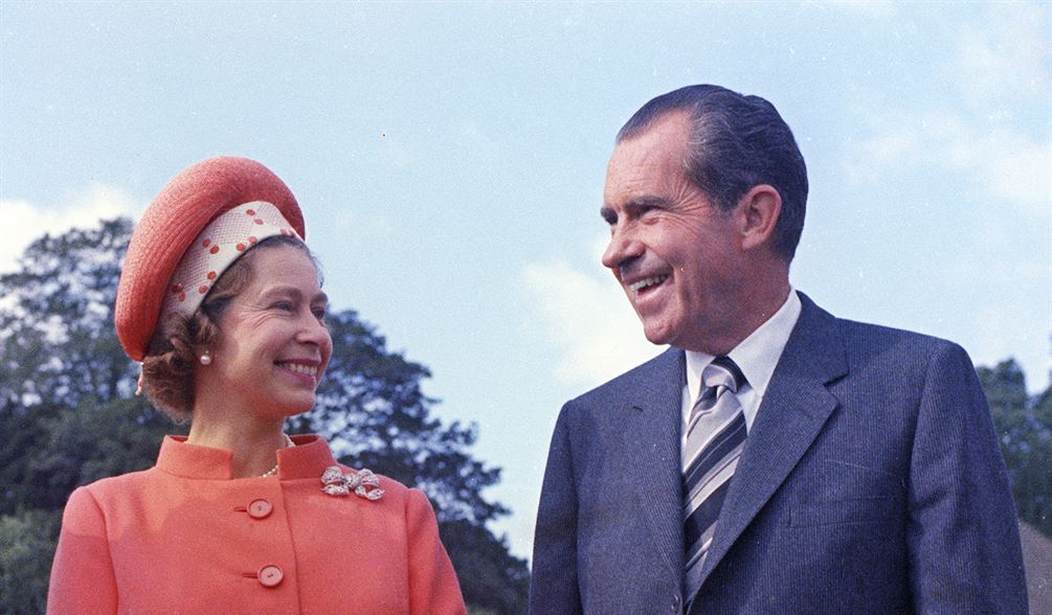File this under the "you can’t make this crap up" category.
Don’t look now, but according to Politico, there is a rising tide of “conservative voices” seeking to rehabilitate the tarnished legacy of Richard Nixon. This misguided effort to salvage Nixon's reputation cannot overshadow his disastrous decisions and policies that had long-lasting negative ramifications for the United States. From delinking the dollar from gold to implementing wage and price controls and supporting the catastrophic war on drugs, Nixon's actions should forever cement his status as the least admired Republican president in American history alongside the ill-fated Herbert Hoover.
One of Nixon's most damaging actions was removing the U.S. from the Bretton Woods Agreement, thereby effectively abandoning the gold standard. This was a reckless decision, which Arthur Burns, who served as Counselor to Nixon before he was appointed Chairman of the Federal Reserve, opposed vehemently. Removing the United States from Bretton Woods devalued the dollar, leading to runaway systemic inflation and setting the stage for decades of economic instability that continues even to this day. The consequences of that policy blunder were felt by average Americans who endured rising prices and reduced purchasing power while their savings dwindled.
Nixon's disregard for sound monetary policy left an indelible mark on the country's economic landscape, one that should never be forgotten or minimized.
Moreover, Nixon's ill-conceived experiment with wage and price controls was a clear departure from free-market principles and a direct assault on individual liberty. These oppressive policies stifled innovation, discouraged job creation, and gave the government unprecedented control over the economy. Rather than allowing market forces to determine fair wages and prices, Nixon's heavy-handed intervention disrupted the natural equilibrium of supply and demand, leading to scarcity, inefficiencies, and distorted signals across industries.
But it gets even worse: As I wrote about here, Nixon's support for the war on drugs was a disastrous policy that fueled mass incarceration, perpetuated racial inequality, wasted billions of taxpayer dollars, and was the beginning of the weaponization of law enforcement. Under Nixon's presidency, the federal government launched a zealous campaign that criminalized drug use and disproportionately targeted minority communities. The harsh penalties and draconian sentencing guidelines imposed during this period had far-reaching consequences, fracturing families and communities while doing little to address the root causes of drug addiction.
The war on drugs has been widely recognized as a failure, with its legacy of unjust policies and shattered lives continuing to plague the nation to this day.
Beyond these specific policy failures, Nixon's presidency was marred by scandals and abuses of power. The Watergate scandal and Nixon's subsequent resignation cast a dark cloud over his presidency and the Republican Party, revealing a leader who prioritized personal gain and political survival over the well-being of the nation. The Nixon administration also engaged in illegal surveillance, weaponized the IRS to target political opponents, and trampled on civil liberties. Yeah, I can certainly understand why some on the right are yearning for such atrocious conduct.
Bottom line, the delinking of the dollar from gold, support for wage and price controls, and the war on drugs all had far-reaching negative consequences, all of which continue to impact the country to this day. And it provides ample justification for Nixon to remain as the disgrace he most certainly was. That any so-called conservative would suggest Nixon, as opposed to Ronald Reagan, be looked to as the intellectual leader of the conservative movement and the Republican Party is utterly beyond comprehension.
As conservatives, we should embrace policies and principles grounded in limited government, fiscal responsibility, lower taxes, free markets, sound money, and individual liberty. All of these principles were clearly violated during Nixon's tenure, making his legacy a cautionary tale rather than one worthy of respect or admiration.
Indeed, rather than seeking to revise history in order to support the current narratives of some on the right, Richard Nixon's legacy should serve as a constant reminder of the need for integrity, accountability, and genuine commitment to conservative principles, rather than being whitewashed or reimagined in an attempt to salvage his reputation.














Join the conversation as a VIP Member